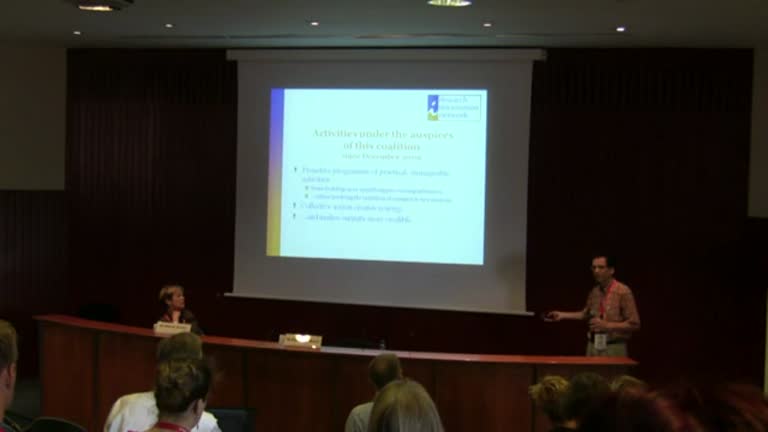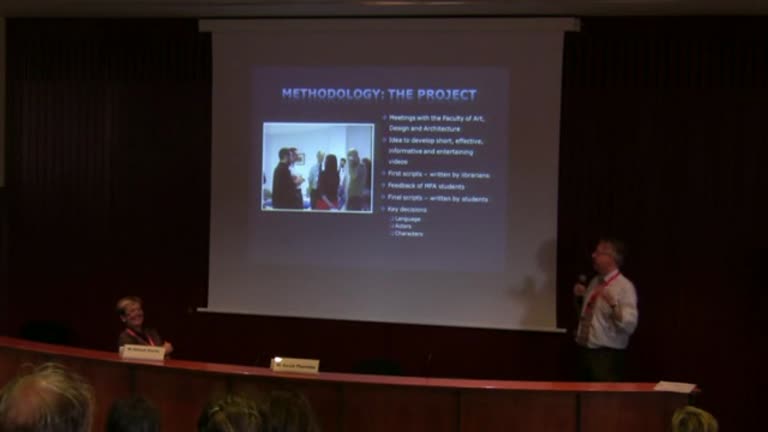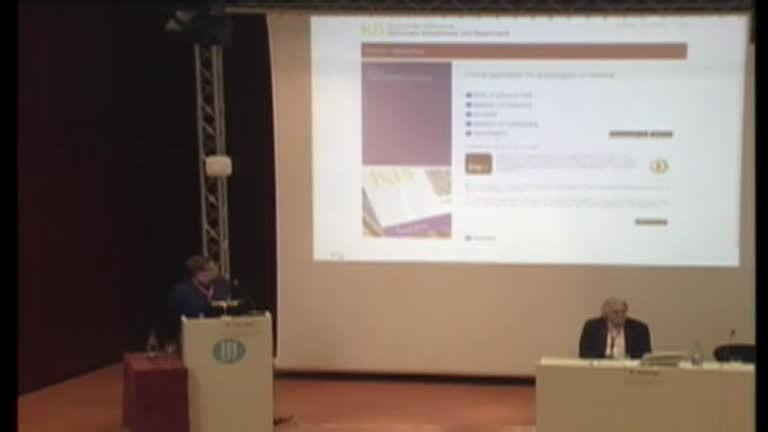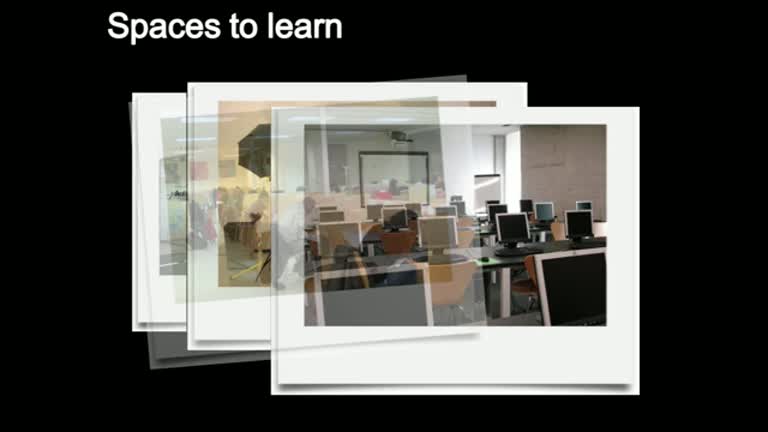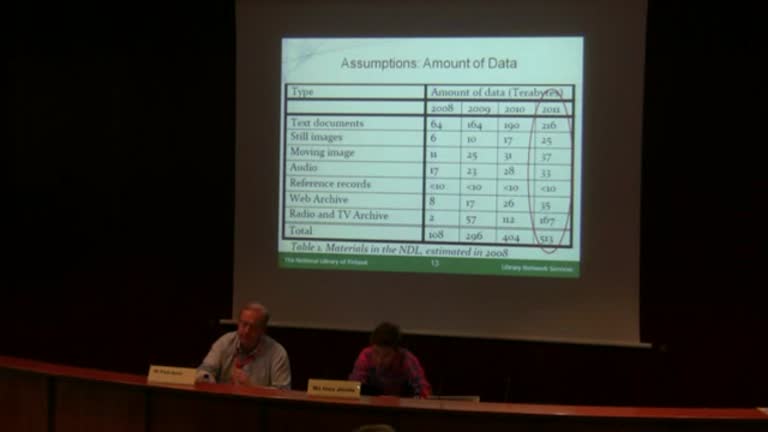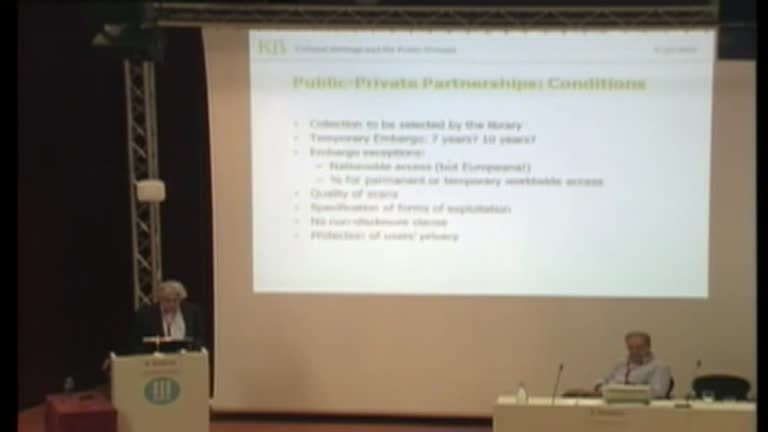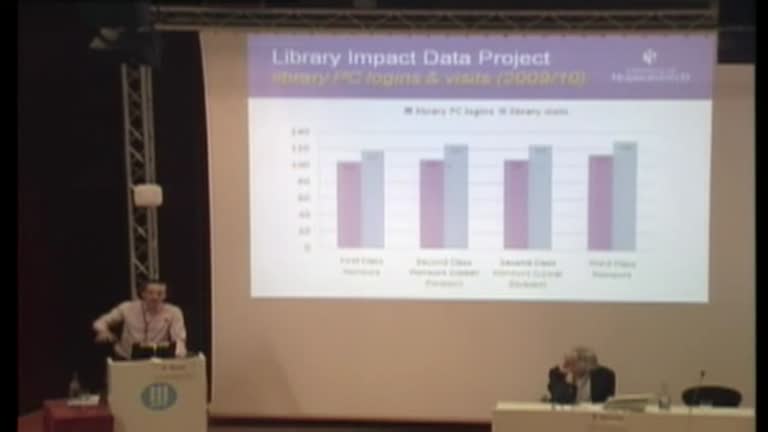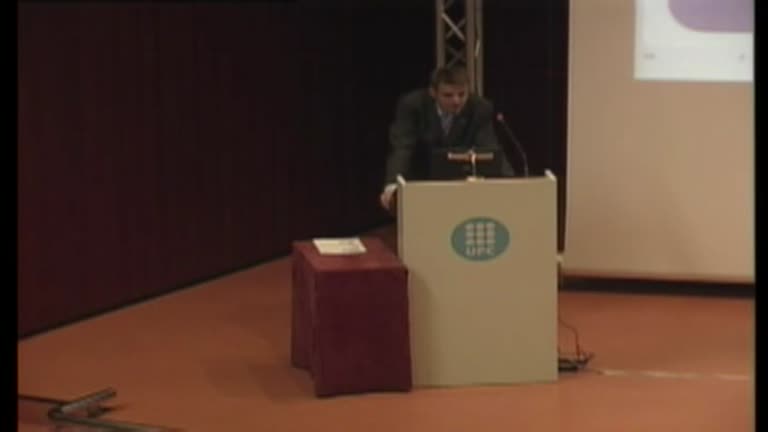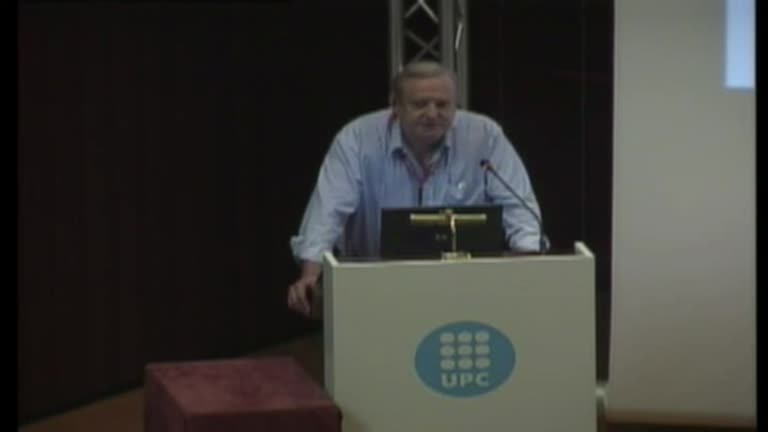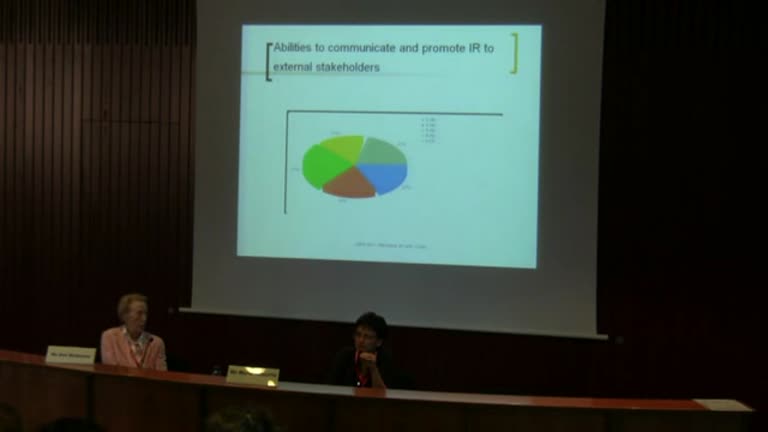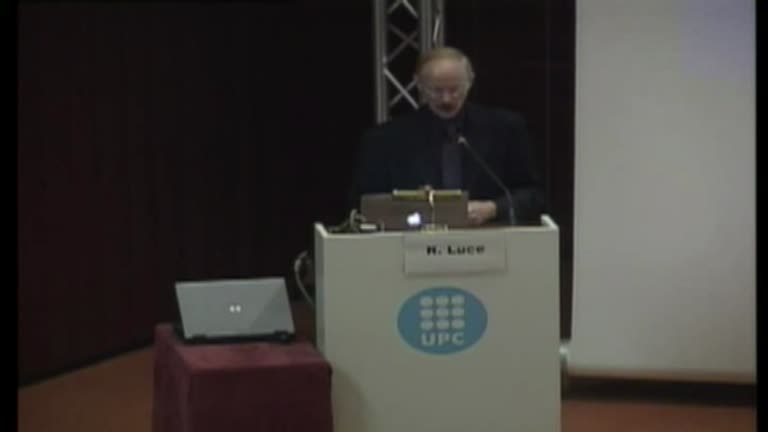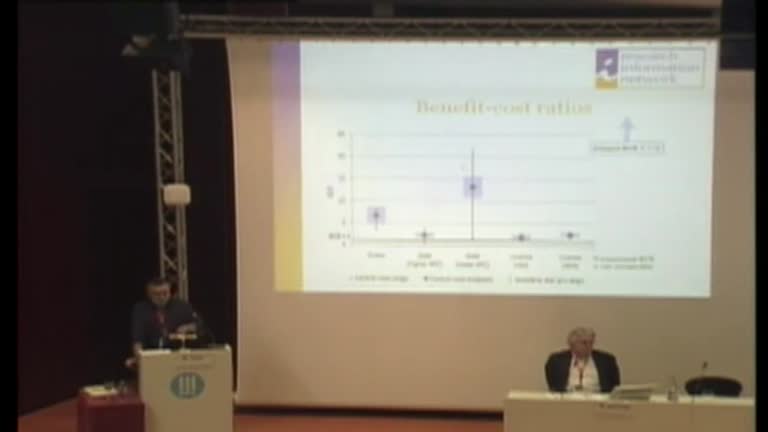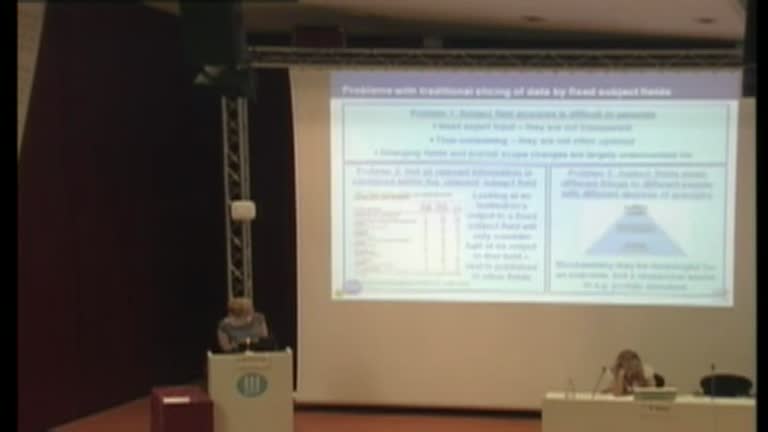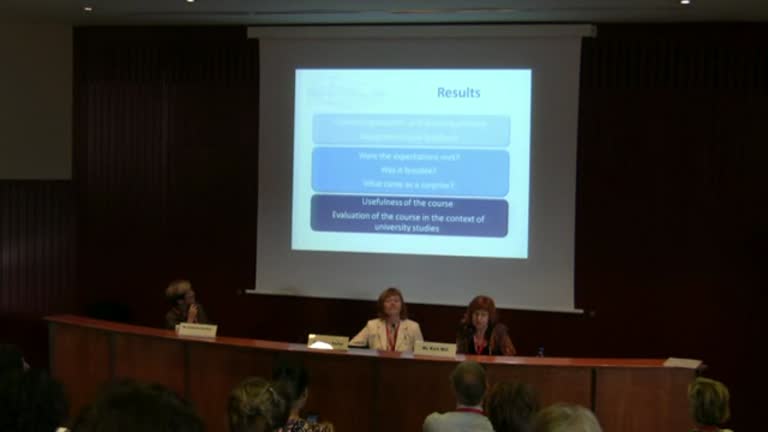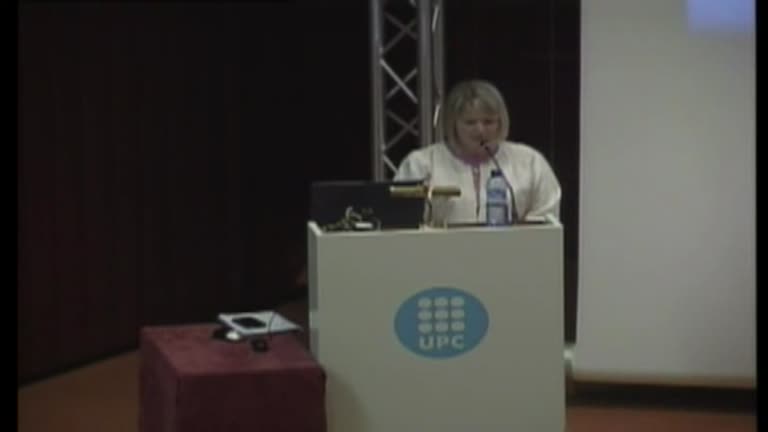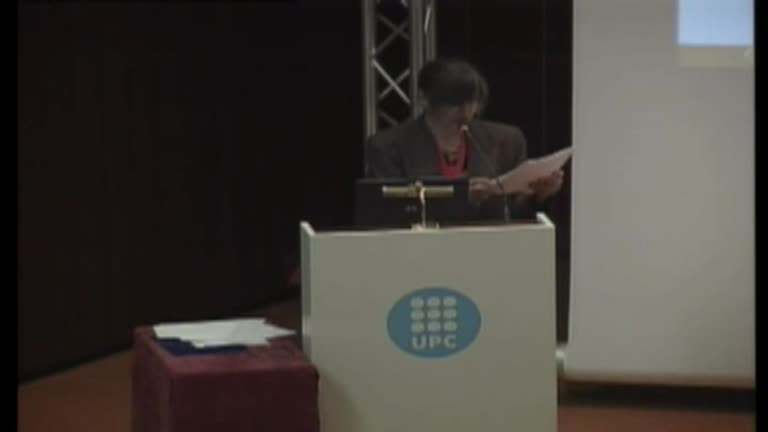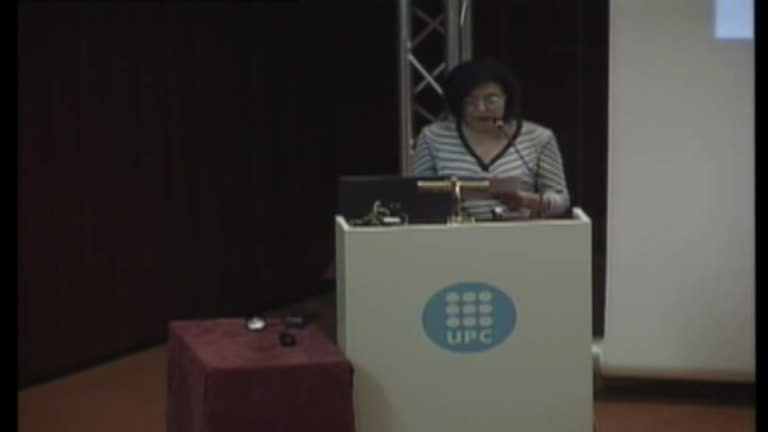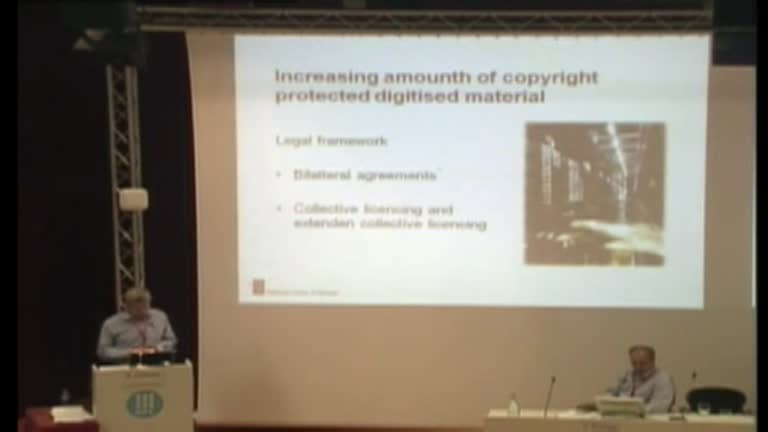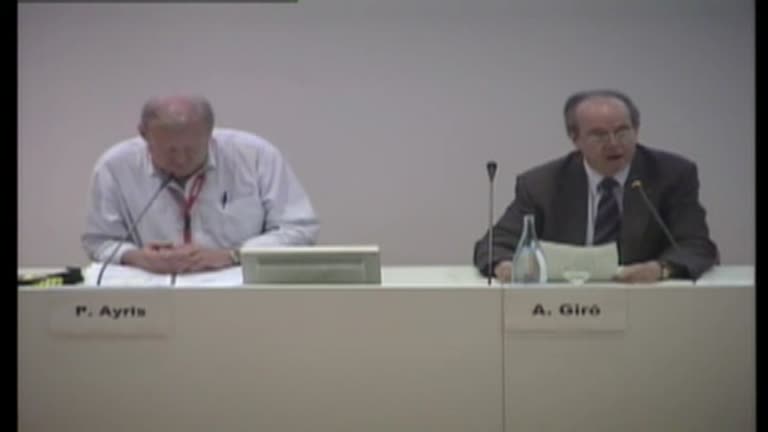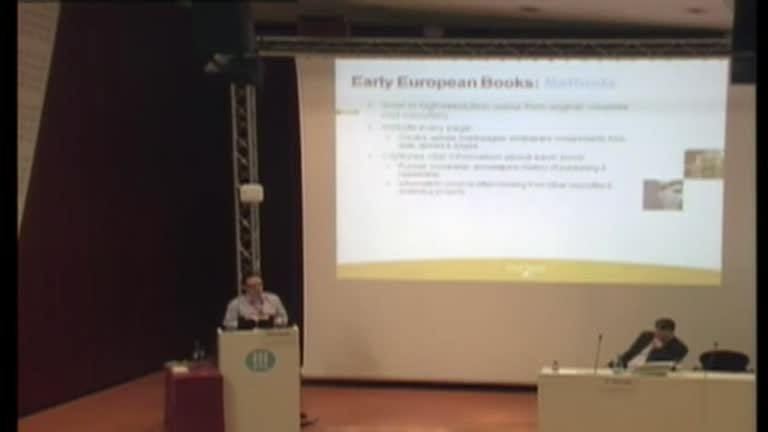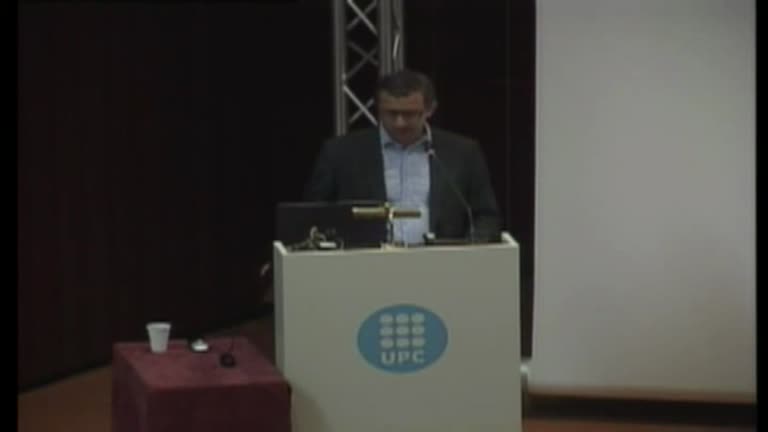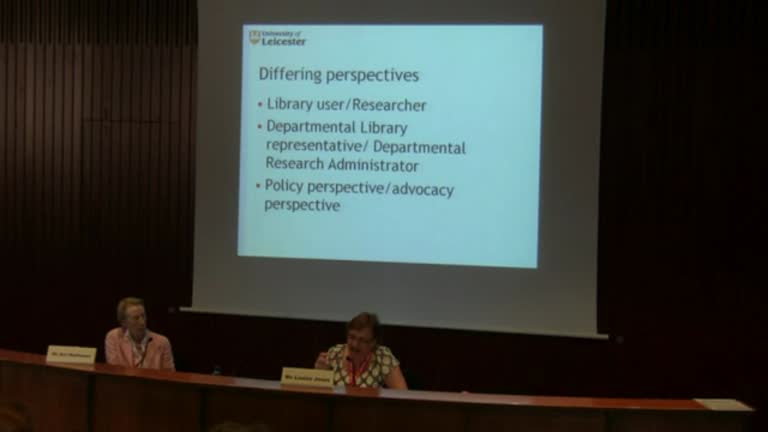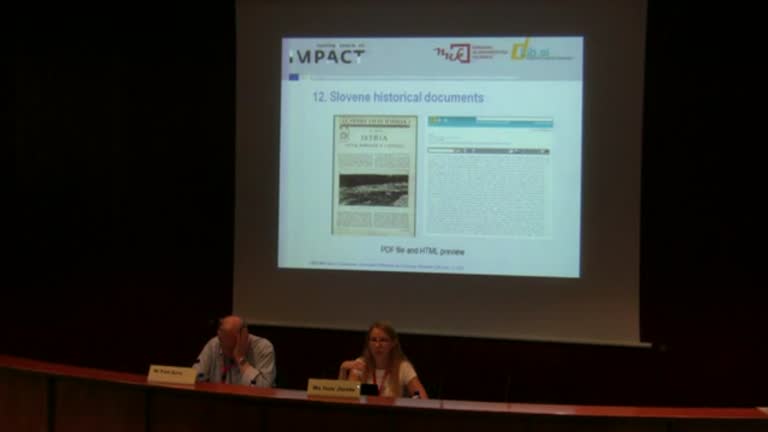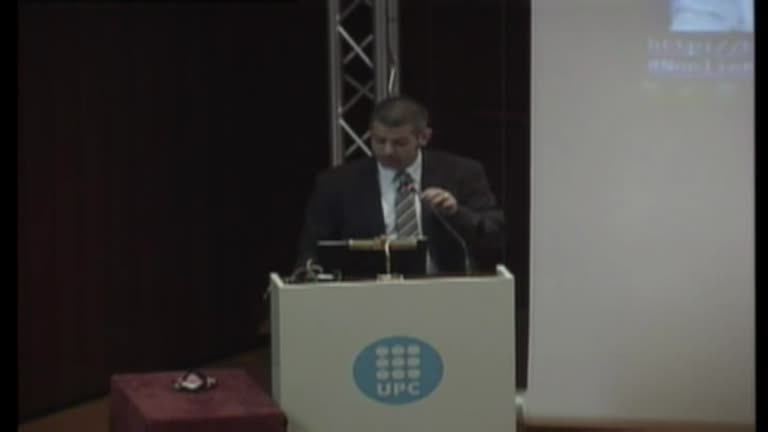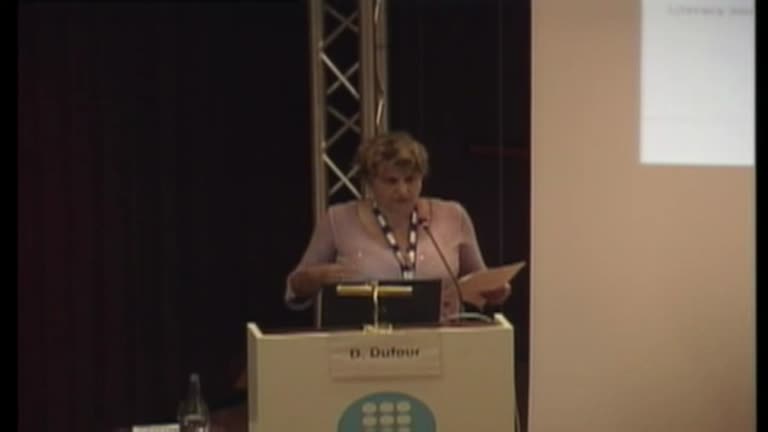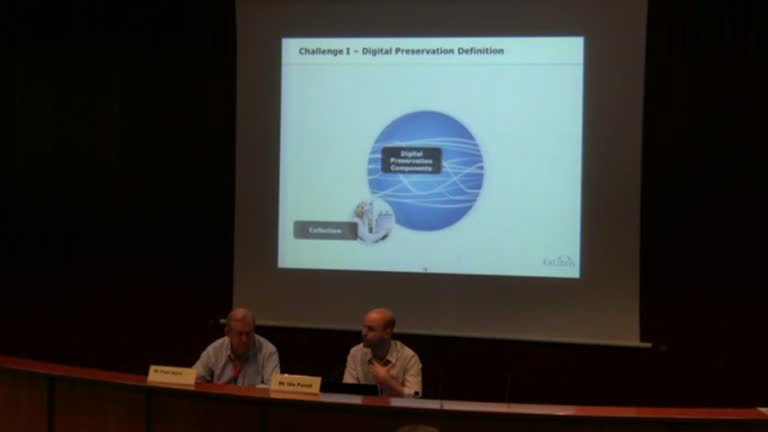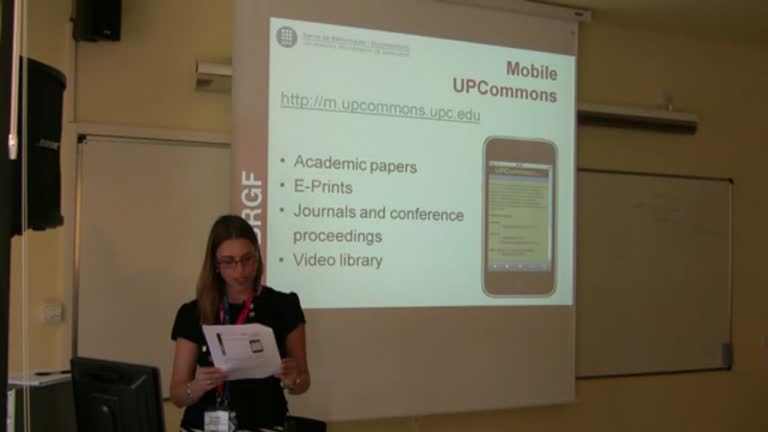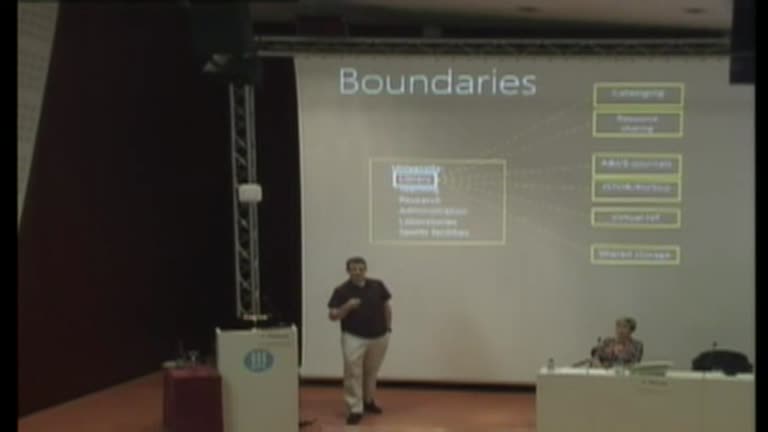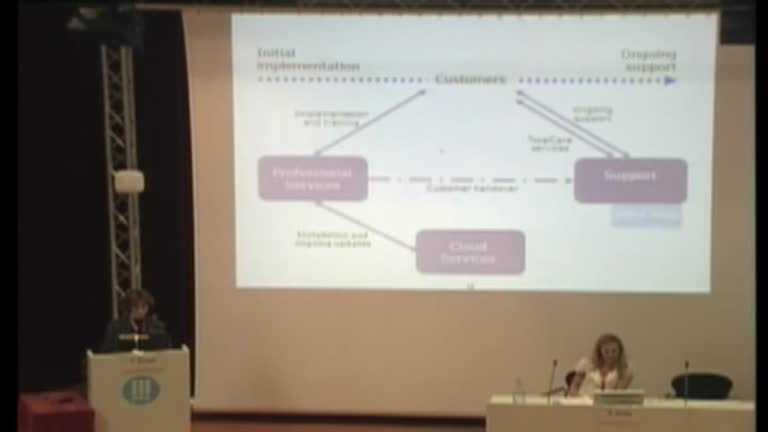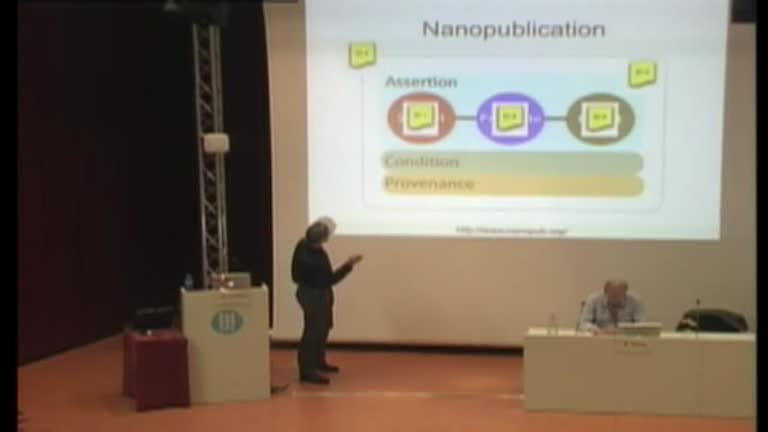Does library use affect student attainment? A preliminary report on the library impact data project
Accés obert
1 de jul. 2011
0
reproduction
Graham Stone
David Pattern
The current economic climate is placing pressure on UK Universities to maximise use of their resources and ensure value for money. In parallel, there is a continuing focus on the student experience and a desire that all students should achieve their full potential whilst studying at University.
Llicència: Reconocimiento-NoComercial-SinObraDerivada 3.0 España (CC BY-NC-ND 3.0 ES)
Sèrie:
LIBER Annual Conference 2011
Vídeos de la mateixa sèrie
A partnership approach to promoting information literacy for higher education researchers
Accés obert
30 de juny 2011
The promotion and development of information literacy for researchers has tended in the UK to be the preserve of university librarians. Although much good work takes place in practice to help develop appropriate skills and understanding, this is often haphazard. There is thus a strong case for greater join-up involving input from and strategic coordination between interested parties beyond the library sector.
This is the rationale for the creation of a coalition of partners, including information professionals, graduate school personnel, data management specialists, research supervisors and researchers. The programme of work overseen by this partnership has involved engaging with and building on existing initiatives, as well as initiating its own projects.
This is the rationale for the creation of a coalition of partners, including information professionals, graduate school personnel, data management specialists, research supervisors and researchers. The programme of work overseen by this partnership has involved engaging with and building on existing initiatives, as well as initiating its own projects.
All the world’s a stage: Improving students’ information skills with dramatic video tutorials
Accés obert
30 de juny 2011
This paper will describe an on-going project at Bilkent University Library, Turkey, to create a series of instructional online videos aimed specifically at the so-called Net Generation (Generation Z) library users. These videos, which will be produced by doctoral students from the university’s Communication and Design department in collaboration with the Library and will be uploaded to the world wide web. The videos seek to present basic reference and information problems in the form of short, informal dramatic exchanges between a student and a librarian, rather than using the formal pedagogical format of most traditional online tutorials.
An integral approach to digital information delivery in The Netherlands
Accés obert
1 de jul. 2011
The Koninklijke Bibliotheek (KB)’s mission is to connect people and information. One of its core responsibilities is to deliver digital scientific information to end-users, focusing on on-line access and services.
A significant number of documents, however, is only available to specific user groups (e.g. library members, students or researchers), or only remotely accessible by paying a fee.
This paper will discuss an approach to delivering information that focuses on creating on-line access to relevant scientific information to remote end-users. This integral vision is currently realized in two pilot projects, in cooperation with Dutch public libraries, research institutes and publishers.
A significant number of documents, however, is only available to specific user groups (e.g. library members, students or researchers), or only remotely accessible by paying a fee.
This paper will discuss an approach to delivering information that focuses on creating on-line access to relevant scientific information to remote end-users. This integral vision is currently realized in two pilot projects, in cooperation with Dutch public libraries, research institutes and publishers.
Costs and benefits of a shared digital long-term preservation system
Accés obert
1 de jul. 2011
This paper is a report on the cost-benefit analysis of digital long-term preservation that was conducted as a part of the National Digital Library Project in 2010.
The analysis was based on the assumption that a large number, perhaps as many as 200, of archives, libraries, and museums will share a preservation system. The term ”system” shall be understood as encompassing not only information technology, but also people, organizational structures, policies and funding mechanisms.
The cost analysis shows that a preservation system will incur, over 12 first years, cumulative costs of 42 million euros. If a dark archive will be built, the costs will increase by 3.4 million euros. Human resources and investments on information technology are the major cost factors. After the initial stages, the analysis predicts annual costs of circa 4 million euros.
The analysis was based on the assumption that a large number, perhaps as many as 200, of archives, libraries, and museums will share a preservation system. The term ”system” shall be understood as encompassing not only information technology, but also people, organizational structures, policies and funding mechanisms.
The cost analysis shows that a preservation system will incur, over 12 first years, cumulative costs of 42 million euros. If a dark archive will be built, the costs will increase by 3.4 million euros. Human resources and investments on information technology are the major cost factors. After the initial stages, the analysis predicts annual costs of circa 4 million euros.
Cultural heritage and the public domain
Accés obert
30 de juny 2011
The recent report of the “Comité des Sages” recommends that “cultural institutions should make public domain material digitised with public funding as widely available as possible for access and re-use”. One of the objectives of the Berlin Declaration on Open Access to Knowledge in the Sciences and Humanities is "encouraging the holders of cultural heritage to support open access by providing their resources on the Internet".
Does library use affect student attainment? A preliminary report on the library impact data project
Accés obert
1 de jul. 2011
The current economic climate is placing pressure on UK Universities to maximise use of their resources and ensure value for money. In parallel, there is a continuing focus on the student experience and a desire that all students should achieve their full potential whilst studying at University.
Establishing a research information system as part of an integrated approach to information management: best practice at the Karlsruhe Institute of Technology (KIT)
Accés obert
30 de juny 2011
The Karlsruhe Institute of Technology (KIT) is one of the largest research and higher education organisations in the world focusing on engineering and natural sciences.
At present KIT, under the chairmanship of its executive board, is installing an extensive current research information system (CRIS) covering all institutes and facilities of the organization.
This project is based on the fact that a consistent overview on research performance has become fundamental for the international competition of research institutions and is increasingly important for strategic decisions on the executive level.
At present KIT, under the chairmanship of its executive board, is installing an extensive current research information system (CRIS) covering all institutes and facilities of the organization.
This project is based on the fact that a consistent overview on research performance has become fundamental for the international competition of research institutions and is increasingly important for strategic decisions on the executive level.
Establishing the library landscape in Europe: LIBER's portfolio of EU projects
Accés obert
30 de juny 2011
LIBER's strategy (at http://www.libereurope.eu/node/59) has established Key Performance Areas for LIBER to add value to the library and information services available to European researchers. The five key Performance Areas are: Scholarly Communication, Digitisation and Resource Discovery, Heritage Collections and Preservation, Organisation and Human Resources, and LIBER Services.
Fostering new roles for librarians. Skills set for repository managers: results of a survey in Italy
Accés obert
30 de juny 2011
The open access movement in scholarly communication has considerably grown over the last ten years, and has subsequently driven an increase in the establishment of institutional repositories (IRs). This change led to develop and to define new professional roles and skills for the IRs’ effective management.
Traditionally, metadata curation has been regarded as a strategic element for repositories and therefore the library and information community has taken up the management of these digital archives. However, it has become clear that traditional librarian professional skills, such as metadata expertise and curation, leave now the way to a richer set of skills such as management and communication skills, technical skills as well as expertise on access rights and on preserving digital content.
Traditionally, metadata curation has been regarded as a strategic element for repositories and therefore the library and information community has taken up the management of these digital archives. However, it has become clear that traditional librarian professional skills, such as metadata expertise and curation, leave now the way to a richer set of skills such as management and communication skills, technical skills as well as expertise on access rights and on preserving digital content.
From here to the clouds: eResearch and the research library
Accés obert
29 de juny 2011
Current efforts supporting eResearch environments have focused on large scale data capture and preservation challenges. Equally significant challenges, however, are presented by new paradigms in research methods and research communications. Simultaneously IT services are moving to the cloud, driving questions centered on the role of the institution and its library in a world where individuals can obtain solutions anywhere in the cloud. As these challenges are larger than any single institution can meet, the research library is called to consider reconceiving its role along lines that depart from our past. How will these shifts impact our models for organizing, operating and staffing research libraries? The presentation will touch on this rapid evolution and suggest some approaches to reframing our mental models of the research library in the context of the university.
Heading for the open road: costs and benefits of transitions in scholarly communications
Accés obert
1 de jul. 2011
All the key players in scholarly communications – funders, universities, libraries, publishers, and researchers – have an interest in improving access to scholarly journals. But the different constituencies do not share a common view of how this might best be achieved. Much attention has focused on open access and the benefits it could bring if adopted globally. But little attention has been paid to the dynamics of transition towards substantial improvements in access.
How to assess the influence of research - translating user feedback into tools
Accés obert
30 de juny 2011
How influential is scholarly communication? This is a question increasingly asked of librarians in the face of higher expectations around the availability and rapid provision of relevant data. These questions have traditionally been addressed by document output counts and the Impact Factors of journals that have been published in; while this is certainly useful to a degree, concern has been expressed about basing decisions on such limited metrics that apply to varying degrees to distinct fields and career stages.
How to teach information literacy relevant to students: an online credit course model from the University of Tartu Library
Accés obert
30 de juny 2011
To communicate the necessity of information literacy in the university and to draw attention to it as a possible subject, we created in 2006 a web-based general course model of information literacy. The course is based on the ALA standards and is now included in the university curriculum as a credit bearing optional elective course, giving 3 ECTS credit points. We relied on experiences described in professional literature: information literacy can be effectively taught in separate courses, and such courses should be offered by libraries as well. On the basis of the course, we have also created an advanced course for doctoral students, several specialized courses in information literacy integrated into subjects, and a nationwide course for gymnasium students.
Increasing access to special collections
Accés obert
29 de juny 2011
This presentation extracts the essence of many related efforts to help libraries, archives, and museums increase access to their special collections. The Shifting Gears essay (which was presented to the LIBER conference in 2008) will be used as the launching point. Shifting Gears argued for scaling up the digitization of special collections by thinking in terms of access, instead of preservation (when we are preserving the originals).
Managing research information for researchers and universities
Accés obert
30 de juny 2011
Recent research on scholarly behavior converges on conclusions about ecologies of information-related services in universities and across academic disciplines. In the past few years, numerous credible studies - conducted in Europe and North America - have offered evidence about information needs of a variety of researchers and their universities. While we have witnessed simultaneous evolution of discipline-based hubs and institution-based repositories, diverse international reports have identified gaps in digital infrastructure and library provision of services to manage research information.
Mass-digitization at the Complutense University Library. Access and preservation of its bibliographic heritage
Accés obert
29 de juny 2011
IIn the mid-1990’s, the Complutense Library applied the growing body of new technologies to launch, in partnership with the Foundation for the Health Sciences and GlaxoSmithKline Laboratories, a pioneering project: the digitization of a biomedicine valuable collection. The project resulted in the Dioscórides Digital Library. Nevertheless, by 2006, results were rather limited and the digitization rate was very slow. Currently, Dioscórides Digital Library offers free access to 3,000 books from the 14th to the 18th centuries and approximately 50,000 engravings.
In September 2006 the Complutense University of Madrid and Google signed a partnership agreement intended to large-scale digitization of our collections in the public domain.
In September 2006 the Complutense University of Madrid and Google signed a partnership agreement intended to large-scale digitization of our collections in the public domain.
New business models and legal framework for dissemination of digital content
Accés obert
30 de juny 2011
The Norwegian National Library made a decision in 2005 to digitize all of it´s collection. Being a multimedia legal deposit institution the decision implies digitizing printed material, manuscripts, music, film, photos, radio broadcasts and television. A long term schedule for the total operation was presented to the owner, The Ministry of Culture in 2006.
ProQuest’s Early European books
Accés obert
1 de jul. 2011
We will provide a progress report on ProQuest’s ambitious Early European Books project, which aims to build a comprehensive library of European printed books from the first examples in the 1450s through to the year 1700. In doing so, the project represents an innovative model for opening up access to the printed heritage stored in Europe’s rare book libraries. The presentation will provide an outline of ProQuest’s publishing model, digitisation practices and specialist interface, and will also show some samples of the books we have already digitised at the Kongelige Bibliotek, Copenhagen, the Biblioteca Nazionale Centrale di Firenze and the Koninklijke Bibliotheek in The Hague. In addition, we will talk about the economic and intellectual challenges of creating cataloguing and other metadata to accompany the digital files.
Putting 600,000 books online: the large-scale digitisation partnership between the Austrian National Library and Google
Accés obert
29 de juny 2011
In a Public Private Partnership with Google the Austrian National Library will be digitizing its entire historical book holdings from the early 16th to the late 19th century. Within the next 6 years 600.000 public domain books of the library’s world famous historical book collection will gradually be made available online free of charge and without restrictions.
The announcement of the project "Austrian Books Online" in June 2010 triggered a broad public discussion regarding private co-financing of large-scale digitisation. A report recently published by the EC’s "Comité des Sages" emphasises the importance of public private partnerships in reaching the aim of bringing a critical mass of Europe’s cultural heritage online and mentions the Austrian National Library’s project.
In this partnership, Google is financing digitisation, full-text creation and book transportation while the Austrian National Library is bearing the costs for metadata creation, internal logistics, storage of the library’s digital copies and online accessibility. The library will receive a copy of each digitised book. Users will be able to access the digitised books via Google Book Search and via the library’s Digital Library. They will also be able to find the books in a normal Google search as well as in Europe’s cultural heritage portal Europeana.
The announcement of the project "Austrian Books Online" in June 2010 triggered a broad public discussion regarding private co-financing of large-scale digitisation. A report recently published by the EC’s "Comité des Sages" emphasises the importance of public private partnerships in reaching the aim of bringing a critical mass of Europe’s cultural heritage online and mentions the Austrian National Library’s project.
In this partnership, Google is financing digitisation, full-text creation and book transportation while the Austrian National Library is bearing the costs for metadata creation, internal logistics, storage of the library’s digital copies and online accessibility. The library will receive a copy of each digitised book. Users will be able to access the digitised books via Google Book Search and via the library’s Digital Library. They will also be able to find the books in a normal Google search as well as in Europe’s cultural heritage portal Europeana.
Research support services: the rationale for a new partnership and roles at the University of Leicester Library
Accés obert
30 de maig 2011
This paper examines the developing partnership between the University of Leicester Library and the Research Support Office (RSO). It discusses the drivers and barriers to partnership, and the outcomes including the creation of a new role of Bibliometrician. We have discovered that joint work on promotion of open access, integrated research management systems and bibliometrics enhances research support and strengthens the Library and its visibility to researchers.
Role of National and University Library of Slovenia in a multinational research project (IMPACT): a case study
Accés obert
1 de jul. 2011
In this paper, the participation and the role of individual libraries as partners in a consortium research project on digitization issues are analyzed, following the example of the National and University Library of Slovenia (NUK) as a partner in the ongoing project IMPACT - Improving Access to Text. IMPACT is funded under the Seventh Framework Programme of the European Commission (FP7) aimed at improving automated text recognition of digitized materials from different European digital collections. For achieving the project’s objectives, a consortium of partners from different European libraries, information technology and software engineering centres and linguistic institutes was established. The consortium’s work is based on interdisciplinary collaboration in which libraries (like NUK) play an important role as demonstrators of tools developed within the project, and representatives of end-users needs and demands as well.
Science and culture in the EU’s Digital Agenda
Accés obert
29 de juny 2010
The Digital Agenda for Europe is the European Union's blueprint for realising the benefits of the digital revolution - in all areas of society, the economy and technology. Scientific and cultural content have long been in the center of this revolution; indeed, the world wide web was conceived as a way to make dissemination of, and access to, scientific information easier. The talk will start with an overview of the Digital Agenda and situate it in overall EU politics. Then three specific areas will be addressed in more detail: the Digital Agenda policies on the dissemination of scientific information (including open access policies), on open public data and on efforts to put European culture online which concerns technical, financial and legal questions.
Social Media in European Libraries
Accés obert
1 de jul. 2011
EBSCO Information Services is the leading service provider of e-journal, e-book and e-journal package and print subscriptions, e-resource management tools, full-text and secondary databases, and related services for all types of libraries, research organisations and corporations.
The challenges of building a digital preservation system
Accés obert
1 de jul. 2011
In the last two decades, digital technology has enabled us to create, use, and be enriched by information in ways that were unthinkable a generation ago. The growth in the number of digital items in today’s library collections has led to an understanding that new actions must be taken to preserve these digital assets and make them available to future generations.
While many organizations have systems in place for storing and managing digital objects, these systems are not always designed with preservation in mind. Digital preservation is about guaranteeing the continued usability of and access to digital content tomorrow and well into the future. Although preservation focuses on risk management, we would be mistaken if we equated preservation with backup or disaster recovery.
While many organizations have systems in place for storing and managing digital objects, these systems are not always designed with preservation in mind. Digital preservation is about guaranteeing the continued usability of and access to digital content tomorrow and well into the future. Although preservation focuses on risk management, we would be mistaken if we equated preservation with backup or disaster recovery.
The handheld library. Developments at the Rector Gabriel Ferraté Library, UPC
Accés obert
29 de juny 2011
The purpose of this paper is to highlight the mobile services developed by the Rector Gabriel Ferraté Library (BRGF) of the Technical University of Catalonia (UPC), in Barcelona, Spain.
For several years the BRGF has implemented a considerable amount of technological features that have distinguished the library because of its technological vocation, but only those regarding mobile services are listed here.
We consider that the paper could be useful for libraries investigating new technological innovations to communicate and deliver their services to users in a moment when mobile services are an emerging topic in librarianship and information science literature.
By detailing the successive steps that have defined the as yet unfinished process to construct our mobile services portfolio we intend to present a detailed picture of the mobile services and features offered by the library in the university from a case study perspective.
For several years the BRGF has implemented a considerable amount of technological features that have distinguished the library because of its technological vocation, but only those regarding mobile services are listed here.
We consider that the paper could be useful for libraries investigating new technological innovations to communicate and deliver their services to users in a moment when mobile services are an emerging topic in librarianship and information science literature.
By detailing the successive steps that have defined the as yet unfinished process to construct our mobile services portfolio we intend to present a detailed picture of the mobile services and features offered by the library in the university from a case study perspective.
The research library, the university and the network
Accés obert
1 de jul. 2011
Libraries evolved to meet needs in a time of when information materials were distributed and consumed in physical form. Their services and their cooperative arrangements reflect this. Our discussion about digital has tended to focus on tools and collections, but what happens to the structure and organization of the library, its role within the university and the cooperative arrangements it makes, as the network reconfigures how research and learning are carried out? This presentation will present a framework for thinking about the research library as its services, expertise and boundaries change in a network environment.
The transition to cloud-based library services - a vendor’s perspective
Accés obert
30 de juny 2011
Recent global changes, such as technological advances, evolving needs of students and researchers, and extensive budget cuts, are driving libraries to explore new operating models and to consider the benefits of hosted services of various kinds. As a vendor of library software for two and a half decades, Ex Libris has been anticipating the changes and building an infrastructure to support new, hosted modes of operation.
Towards machine-actionable scholarly communication
Accés obert
30 de juny 2011
Ever since their emergence, both the products of scholarly communication and the supporting services have mainly targeted human users. Gradually, however, products are emerging that are more friendly for use by machines, or are even solely designed for them. The emergence of a machine-actionable layer of scholarly communication happens at different levels, and touches upon primary research results, research data, and the research process itself.
The presentation will provide an insight in this ongoing evolution, and will provide concrete illustrations of this trend. It will also zoom in on research data as a new first class objects in digital scholarly communication, some of the challenges related to fully integrating this newcomer, and opportunities and challenges for libraries with this regard.
The presentation will provide an insight in this ongoing evolution, and will provide concrete illustrations of this trend. It will also zoom in on research data as a new first class objects in digital scholarly communication, some of the challenges related to fully integrating this newcomer, and opportunities and challenges for libraries with this regard.


